I have received new books. Recent arrivals include
First, from the pen of Fr. Cliff Ermatinger comes If You Knew the Gift of God: Grace: What it is, what it does, and how to cooperate with it according to Church Teaching and Tradition
Fr. Ermatinger reminds us that the saints about whom read, impressive figures, were real people just like us. We, too, are called to holiness.
Another title from Ignatius Press and George Weigel is The Fragility of Order: Catholic Reflections On Turbulent Times. If I remember correctly, he also wrote a book on the “tranquility of order”.
The TOC is intriguing:
Introduction: Things Coming Apart?
Part One
A World without Order
with 5 essaysPart Two
A Republic in Disarray
4 essaysPart Three
The Chruch in the Postmodern World
4 essays, two of them about the controversial Synods
Again from Ignatius Press, a book co-authored by a layman and a Jesuit. Since this is Ignatius Press, we don’t have to be too suspicious!
José Luis Iriberri, SJ and Chris Lowney give us On The Ignatian Way: A Pilgrimage in the Foosteps of Saint Ignatius of Loyola
St. Ignatius, whose feast is upon us, made a pilgrimage to Manresa, Spain. This book intends to help the read plan a pilgrimage. I includes also essays from several writers.
And two that I have mentioned before but are important.
Very exciting is a volume from the mighty Nicola Bux, No Trifling Matter: Taking the Sacraments Seriously Again:
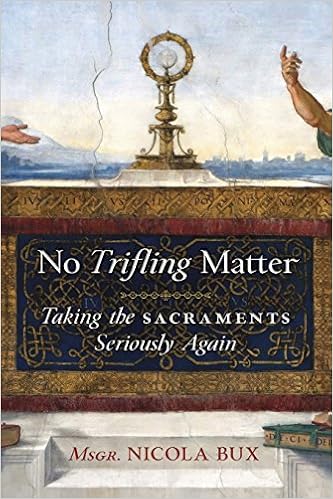
And there’s Martin Mosebach updated The Heresy of Formlessness: The Roman Liturgy and Its Enemy (Revised and Expanded Edition) republished by Angelico.
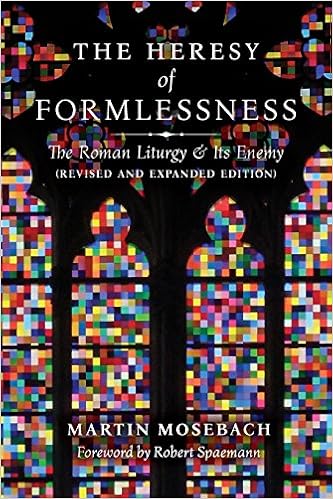
Everyone of you should read Mosebach’s book.
For all your book shopping, or shopping for other things too!, use this search bar as your entry point.

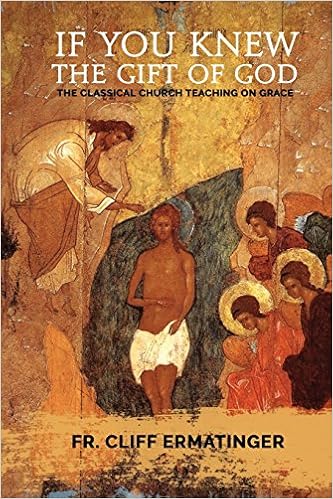
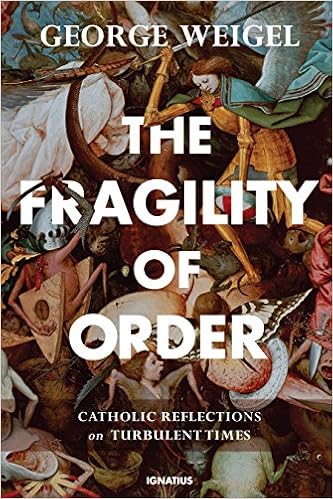
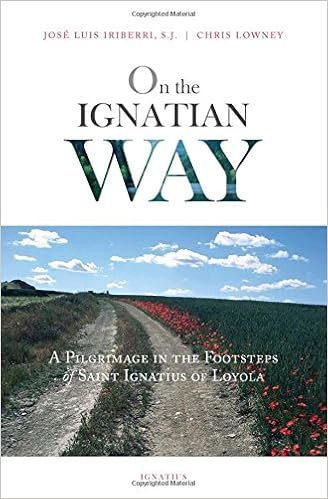

































Reading Mosebach. Half way through. It’s now one of my top 10 must read / recommend Catholic books. Period. Gonna make my kids read it and test them on it.
Thanks for doing this! May our Lord reward you.
I read The Fragility of Order and it is excellent. I’ve already shared my copy.
The author takes us on a trip through history to explain how the notion that “nothing matters” came to be.
At the end of his book he asks “…can we enter into this impoverishment of the Church’s status and influence in the West with a Franciscan spirit, using our joyful embrace of Christ crucified and risen as an evangelical opportunity to offer a death- dealing culture a path beyond its lethal self-absorption and its confusion if the pleasure principle with beatitude?”
Thanks for this book post Fr. Z.
George Weigel did write a book about the “tranquility of order” in the 1980s about Catholic thought on war and peace. I haven’t read that one but did read his insightful 1991 book “Just War and the Gulf War.”
The TOC of Weigel’s “The Fragility of Order” is intriguing indeed. One of the essays in Part Two “A Republic in Disarray” is titled: “A New Great Awakening.” Here Weigel calls for another Great Awakening, in both spirit and intellect, to revitalize the culture and transform statist (“Leviathan”) politics.
In this essay Weigel at first agrees with Rod Dreher’s book “The Benedict Option”: there is a profound moral-political crisis today, and “intentional communities of believers” can be of some benefit. However, Weigel correctly points out that “The Benedict Option” misreads history, St. Benedict, and our current predicament.
Others have also scrutinized the flaws in the Benedict Option such as: Fr. Rutler (a March 2017 interview at the Catholic Herald “‘The Benedict Option risks becoming a ghetto mentality’: an interview with Fr. George Rutler”), Carrie Gress, R.R. Reno of First Things, John Jalsevac at LifeSite, John Zmirak, Fr. Longenecker (“The Flaw in the Benedict Option” at Patheos), and Luma Simms (“The Benedict Option Can’t Save Your Faith or Family”).
Weigel in “The Fragility of Order” disagrees with Dreher’s defeatist call for Christians to abandon politics and thus cede governance to the secularists and socialists. I would add that surrendering the regulatory agencies, the military, the education system, and the security/intelligence services to the socialists and secularists would actually make the “Benedict Option” intentional communities untenable.
Weigel is against abandoning the field:
“But men and women of conviction and conscience may still be found in our state legislatures and in Congress, among the state governors, and in the administration of the federal government. They deserve more than the support of believers’ prayers, offered from the safety of auto-constructed 21st-century catacombs and other enclaves; they deserve the engaged support of citizens who know full well that politics and law cannot fix what is broken in our public moral culture, but who also know that a political and legal framework for national cultural renewal must be created, at least in terms of creating free space for that moral-cultural renewal to unfold.
“Christians are still called to be salt and light in the world, and to care actively for the common good. To approach politics without illusions is an imperative of Christian realism. To abandon political life entirely is to default on one’s obligations to solidarity and the common good — and, ultimately, to the virtue of charity.”
Weigel’s point is compelling. Be Smart but Stay in the Fight. St. John Paul II did just that against both National Socialists and Communists.
Blessed be the name of the Lord.
If I could, an expansion of my comment of 2 August.
1. “The Benedict Option” proposes within its pages: a strategic withdrawal; building an ark; an exile in place; but that “Benedict Option Christians” should be active at state and local level.
However, ceding the national government to secularists and socialists will make “Benedict Option” intentional communities untenable. That these communities would be capable of resisting the pressures and resources of a totalitarian national government is simply an illusion. These communities would be driven underground for who knows how long- and the situation today is different than that of the Cold War and John Paul II.
A “strategic withdrawal” or “exile in place” by Christians would increase the probability of a national government transforming into a totalitarian regime.
2. The apocalyptic tone in “The Benedict Option”- “we’ve lost on every front”, “trying to reclaim our lost influence will be a waste of energy”, “the public square has been lost”, “the culture war is over”- propagates defeatism, an unhealthy frame of mind for those living, as called for by this book, within intentional communities.
That apocalyptic assessment is also erroneous, as evidenced by the many Christians who reject strategic withdrawal and are active, each in their own way, in the public square.